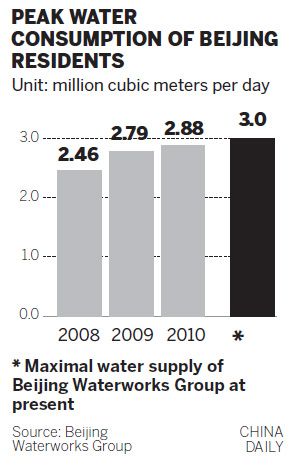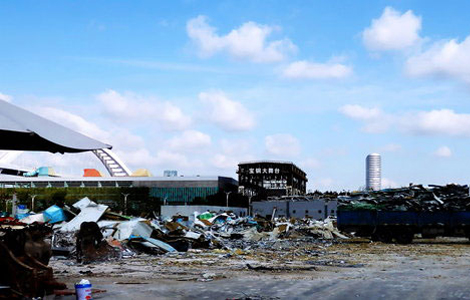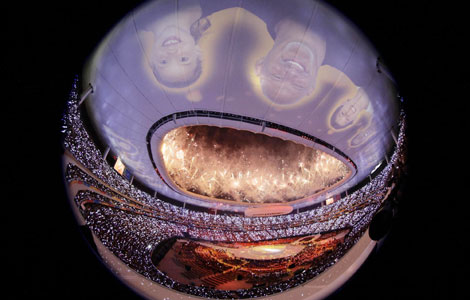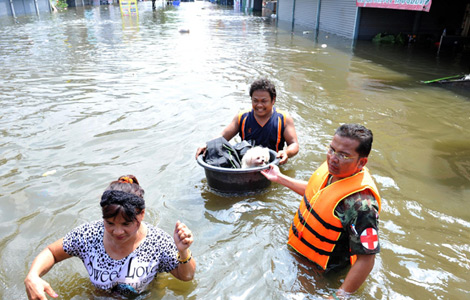Capital could have desalinated water from Bohai in 5 years
Updated: 2011-10-21 07:49
By Cao Yin (China Daily)
|
|||||||||||
BEIJING - Desalinated seawater may be available for residents of the capital within five years and become a main supply source in efforts to deal with the water shortage.
The project, which desalinates seawater from the Bohai Bay and transports it to Beijing through 230 kilometers of pipes, has been experimented with in Caofeidian in Hebei province, the National Development and Reform Commission's (NDRC) website said.
|
 |
The desalination project is the first to be designed in China, and cost 430 million yuan ($67 million), the NDRC, the country's top planning agency, said. The first stage of the project, which can produce 50,000 tons of drinking water per day, was completed on Oct 11.
The technology belongs to Aqualyng, a company that specializes in seawater desalination that is headquartered in Dubai and Norway.
"Our company will continue to cooperate with Chinese companies to develop a seawater desalination program that can provide 100,000 tons per day next year," said Ge Lin, market manager at Aqualyng.
"In the near future, we aim to develop a 1 million ton program, and in the long term we may reach 3 million tons per day."
Xie Zhenhua, deputy head of the NDRC, said the project would be an important part of solving Beijing's water shortage.
Demand for water in Beijing is increasing rapidly and the city's underground water has been overused, Liang Li, spokeswoman for the Beijing Waterworks Group, which supplies most people in the capital with water, told China Daily.
"The maximum water supply in the city is 3 million cubic meters each day, but the peak water consumption by Beijing residents reached 2.88 million last year," she said.
The city's population is increasing, meaning demand is growing, Liang said.
"An 8,000 kilometer network of pipes covers the city," she said. "Although we have made efforts to develop new water sources, the water problem is still serious."
Ge said the desalinated seawater would taste the same as tap water, but residents express concern about its quality.
"Many oil leak cases have happened recently in the Bohai Bay," said Zhang Fa, a resident of southern Beijing.
"How the company keeps the water from being polluted is my biggest concern."
Neither the company nor the NDRC answered the question.
However, Fu Tao, an expert at Tsinghua University who specializes in desalinated seawater, said residents should not be concerned about water quality because it will be refined through many strict procedures.
"Clean seawater will first be taken," he said. "Then some minerals will be added for the good of people's health."
As for the cost of the water another major concern of many residents Fu said it was very high at present.
"The pipe system from Caofeidian to Beijing is a huge program and desalinating seawater will also exhaust much electricity and other energies, which will cost a lot of money and result in a very high price that people can't afford," he said.
But Fu said that after larger programs were put into place, costs would drop.
"A larger scale of production brings lower costs," he said. "Besides, the government will also give subsidies to lower the water price."
Hot Topics
Libya conflict, Gaddafi, Oil spill, Palace Museum scandal, Inflation, Japan's new PM, Trapped miners, Mooncake tax, Weekly photos, Hurricane Irene
Editor's Picks

|

|

|

|

|

|







